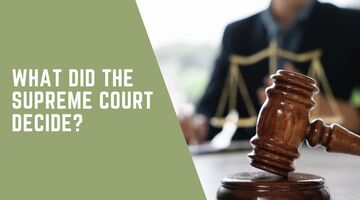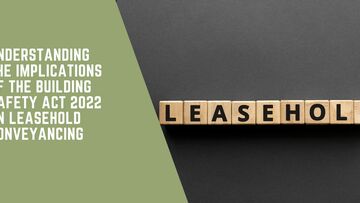Employment: Will Recent Supreme Court Case Expose Employers to More Holiday Pay Claims?
Employment| 04.12.2023
In December 2022, the Supreme Court was asked to consider the question of whether employees should be able to claim for historic underpayments of holiday pay even if there are gaps of more than three months between deductions. In this article, we will summarise the decisions made by the judge in this landmark case and the implications for employers in the UK.
A recent landmark judgement by the Supreme Court in the long-running case of Chief Constable of Northern Ireland v Agnew will have important implications for how holiday pay should be deducted by employers in the UK.
Background To The Case
Chief Constable of Northern Ireland v Agnew (Agnew) involved a historical claim by over 3,300 police officers and 364 civilian employees of the Police Service of Northern Ireland (PSNI). The claim concerned unlawful deductions from wages under the Employment Rights (Northern Ireland) Order 1996 art.45 and underpaid annual leave contrary to the Working Time Regulations (Northern Ireland) 2016 (the Regulations). The claimants argued that they had only received their basic pay when taking holiday leave whereas they were entitled to more holiday pay. This includes payments for compulsory overtime which police officers are often asked to take, for example when policing large events.
In the preliminary stages of the claim, the PNSI admitted that, since 1998, they had incorrectly worked out staff holiday pay based on basic salaries rather than normal pay including overtime i.e. holiday pay should have been calculated to include compulsory overtime. The PSNI argued, however, that employees could not rely fact that the deductions were part of a “series” if any two payments were separated by more than three months. In the 2014 case of Bear Scotland v Fulton, it was established that deductions are linked as part of a series if there is a gap of three months or less between each deduction.
The claimants were successful in their claim. The matter before the Supreme Court was how far back claims could be made for underpayments and whether these were part of a “series” of deductions.

What Did The Supreme Court Decide?
In the case of Chief Constable of Northern Ireland v Agnew, the Supreme Court clarified that is meant by a ‘series’ of deductions:
- Deductions should be considered to be part of a linked series if the employer has not calculated holiday pay correctly
- A complaint of unlawful deductions from wages can be made for a “series” of deductions as long as the complaint is made within three months of the payment from which the last deduction was made. The “series” does not necessarily end if two payments are separated by more than three months.
In other words, if there is a gap of three months or more between deductions, this does not break the chain within the series. What matters is that the underpayments have the same underlying cause. As the judgement explains, “We agree with the Court of Appeal that the word "series" is an ordinary English word and that, broadly speaking, it means a number of things of a kind, and in this context, a number of things of a kind which follow each other in time. Hence, whether a claim in respect of two or more deductions constitutes a claim in respect of a series of deductions is essentially a question of fact, and in answering that question all relevant circumstances must be taken into account, including, in relation to the deductions in issue: their similarities and differences; their frequency, size and impact; how they came to be made and applied; what links them together, and all other relevant circumstances”.
In this case, the deductions formed part of a series because the PSNI had worked out holiday pay using basic pay, rather than normal pay, going back to 1998.
The Supreme Court also clarified that there is no requirement for different types (pots) of leave to be taken in a particular order e.g. ‘euro’ leave, additional domestic leave, or other forms of contractual entitlement. On this matter, the judgement states, “If and in so far as it is not practicable to distinguish between different types of leave then all the leave to which the worker is entitled must form part of a single, composite pot, and the Tribunal and Court of Appeal were right so to conclude”.
What Is The Impact Of Agnew On UK Employers?
Employers will no longer be able to rely on the fact that deductions were made more than three months apart as a protection against a claim. As such, this may increase the exposure of employers to potential claims. All of that said, the existing two-year ‘backstop’ in Great Britain introduced in 2015 will, for now, prevent some claims by employees, however, this may not be vulnerable to challenge in the future. There is no two-year time limit on unlawful deduction from wage claims in Northern Ireland.
Final Words
The Supreme Court’s decision in Agnew undoubtedly represents a major change when it comes to unlawful deduction claims in Great Britain. Risk mitigation is key. We recommend that employers review their exposure to potential claims for unlawful deductions as soon as possible, on the basis that the three-month break rule no longer applies. Depending on the scale of potential claims, it may be necessary to seek appropriate legal advice from an employment law Solicitor and put in place a strategy for managing these if they occur. Most importantly, it is essential that if you are currently not calculating holiday pay correctly, you make the necessary adjustments to mitigate the potential for future claims for unlawful deductions.
Pearcelegal has an employment law solicitor who can advise and represent you on matters relating to employment law. To make an appointment, please contact us on 0121 270 2700 or enquire through our contact form.
Expert advice for you Book a free consultation
The team at Pearcelegal will be delighted to discuss your legal matters and give you a no-obligation quote.



